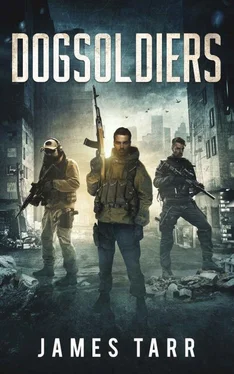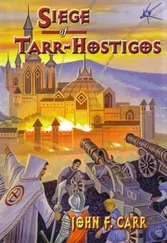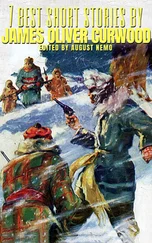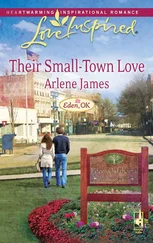Doing his best not to expose himself, Ed looked out both windows in the bedroom, one facing east, one facing south. He could see where Jasper was heading, and where he’d come from. Nothing was moving in either direction.
He turned back in time to see Jasper pause briefly, then the man headed across the street and up the walk to the front door of the house where he expected to find the squad. Jasper paused again, then went inside.
Ed guessed it was less than ten seconds, long enough for Jasper to look around the house and realize that it was, in fact, now empty, before Jasper appeared at the front door. He raised his arm, Ed wondered later if he was trying to wave someone off, then there was a blinding flash and Ed found himself on the floor of the bedroom, the huge crashing boom echoing around the city.
He struggled to his knees and peered over the windowsill. The house at the end of the block, where they’d all been just a short time before, was now a smoking ruin. The roof was ruptured, and the back of the house was a spray of bricks across the lawn. The explosion hadn’t thrown him down, he was too far away for that; he’d fallen down in shock.
Thick black smoke poured out of the roof and windows, and after a few seconds he began to see the orange licks of flame. Then Ed spotted Jasper. He was facedown on the grass beside the street. The explosion had blown him thirty feet through the air, and he wasn’t moving. From the unnatural positions of his limbs, it didn’t seem likely he’d ever move again.
Ed blinked and shook his head. What the hell had happened? If something like that had occurred before the war it would be blamed on a faulty gas main, but here? Now? He squinted, and looked at the hole in the roof. Just as he started to realize a missile had struck the house, he heard the faint sound of a straining diesel engine. Several of them, coming from the south… but heading his way. Fast. Growlers. And something… bigger.
“Time to go!” he barked to himself, climbing to his feet. Whether he should hide in the basement of the house he was in or try to make it back to the rest of the squad, that was the question.
They’d never made it to the depot downtown. None of the squads had. Their plan to assault in numbers and ransack the armory was turned on its ear as the government revealed that it could, in fact, do a pretty good job of triangulating the positions even of encrypted frequency-hopping radios. The two-day running gun battle which had resulted could best be described as a fighting retreat, one where the guerrillas had suffered almost fifty percent casualties. But, by the end of it, Ed was a bloodied veteran, and had used the grenade launcher several times to save his life and the lives of others.
He realized, thinking back on the incident after all this time, that was the last big defeat for what had become the ARF Irregulars. Since that time they’d had losses, sure, but they’d consistently chewed away at the government forces, giving as good or better than they got, on average. No big losses… but no big victories, either. Then again, what would constitute a big victory in what was left of this city? He couldn’t picture it, but Uncle Charlie’s BIG FAMILY REUNION message had him strangely hopeful that things were about to change.
“I don’t actually like it down here, but why aren’t we doing more of this?” Jason whispered to Mark. “Isn’t it safer?”
For the last twenty minutes they’d been half walking, half crawling through a sewer pipe. It was five feet in diameter, or had been before the bottom six inches was filled with semi-dried muck. After what seemed like forever they reached some sort of collection point. Several concrete pipes of varying diameter met in a rectangular space below street level. Six feet above them was a square ventilated steel cover that let in the first natural light they’d seen since entering the sewer system. While they packed the small space elbow to elbow, all of them were relishing the opportunity to straighten their backs.
“Is that poop?” Jason had asked, when he’d been about to enter the cement tunnel. It was a stripe of brown sludge a foot wide along the bottom. He’d never even looked inside a sewer pipe before.
“From who? From what?” Quentin responded. “Nobody left in the city to shit, and none of the toilets are working. That’s just mud.” He smiled. “Although it smells pretty shitty, I’ll give you that.”
No matter what it was, it was a nightmare to walk through, especially when bent double carrying a rifle and backpack and wearing body armor. Everything about the sewer was nightmarish—the smell, the darkness, the claustrophobia. If he hadn’t had men in front of and behind him, grumbling and grunting and obviously as unhappy as he was, Jason might have panicked. Instead of being scary, it just became shared misery.
Ed was in the lead, using a flashlight that, even on its lowest setting, provided a surprising amount of light in the obsidian gloom. Weasel, in the rear, had another small flashlight out, and between the two of them there was just enough light to trudge along without bumping into the man in front. Jason was terrified of what would happen if the batteries in their flashlights died, but then he’d remembered Early had a lighter, and somebody else had some sort of fire-starting tool.
Mark took a drink from his canteen before answering. “Yes, a lot safer. And at the start of the war it was a great way to sneak around without being spotted. The larger trunk lines, I think they’re called, like this one, are big enough to move through, and there are more of them the closer you get to downtown. A few of those are ten feet wide. But the Army figured out what we were doing real quick. They flooded some, blew up others, put booby traps in a few more, blocked some by pouring concrete or dirt or gravel down manholes. So we’ve only got isolated sections left that we can move through, and nothing close to the Blue Zone or the Army base. The Blue Zone’s blocked off below ground, and aboveground there are Tabs and drones.”
“You never know from one year to the next which of these pipes are still going to be open,” Weasel added quietly. “City’s not doing any sewer repair, at least not outside the Blue Zone, so every winter and spring some pipes collapse, or flood, or fill up with silt.” He gestured at the floor below them, and smiled. “It’s a crapshoot.”
His comment was greeted with moans, and his smile grew even wider.
Jason looked at the various other pipe mouths. None of them was any wider than the one they’d just exited. “How much farther are we going down here?”
“Another quarter mile, if nothing’s changed since the last time,” Ed told him. “Now stop asking questions and drink some water.”
They took a twenty-minute lunch break in the ruins of a house that in its day had been quite impressive: two stories, fancy brickwork, a spacious floorplan probably in excess of three thousand square feet. At one point in its history it had been turned into apartments. Now it was crumbled in on itself, a fire having gutted it at least a year before.
The roof was caved in onto the second floor, and the rear wall was a pile of bricks in the back yard grown through with weeds. Water damage from the rain and the abuse of many harsh winters had turned the plaster walls into an earth-tone kaleidoscope of color. Rats and pigeons and bugs had all at one time or another made the house their home, but after so much time living in ruins the men didn’t even see the broken shell around them as they wolfed down what little food they could spare.
The stench rising from the rotten carpet, a combination of mold and animal droppings intermittently soaked by rain and left to bake in ninety-degree weather, only days ago would have been enough to make Jason vomit. Now he barely noticed it. In fact, he was grateful to be in the house, for it brought them out of the baking sun.
Читать дальше












